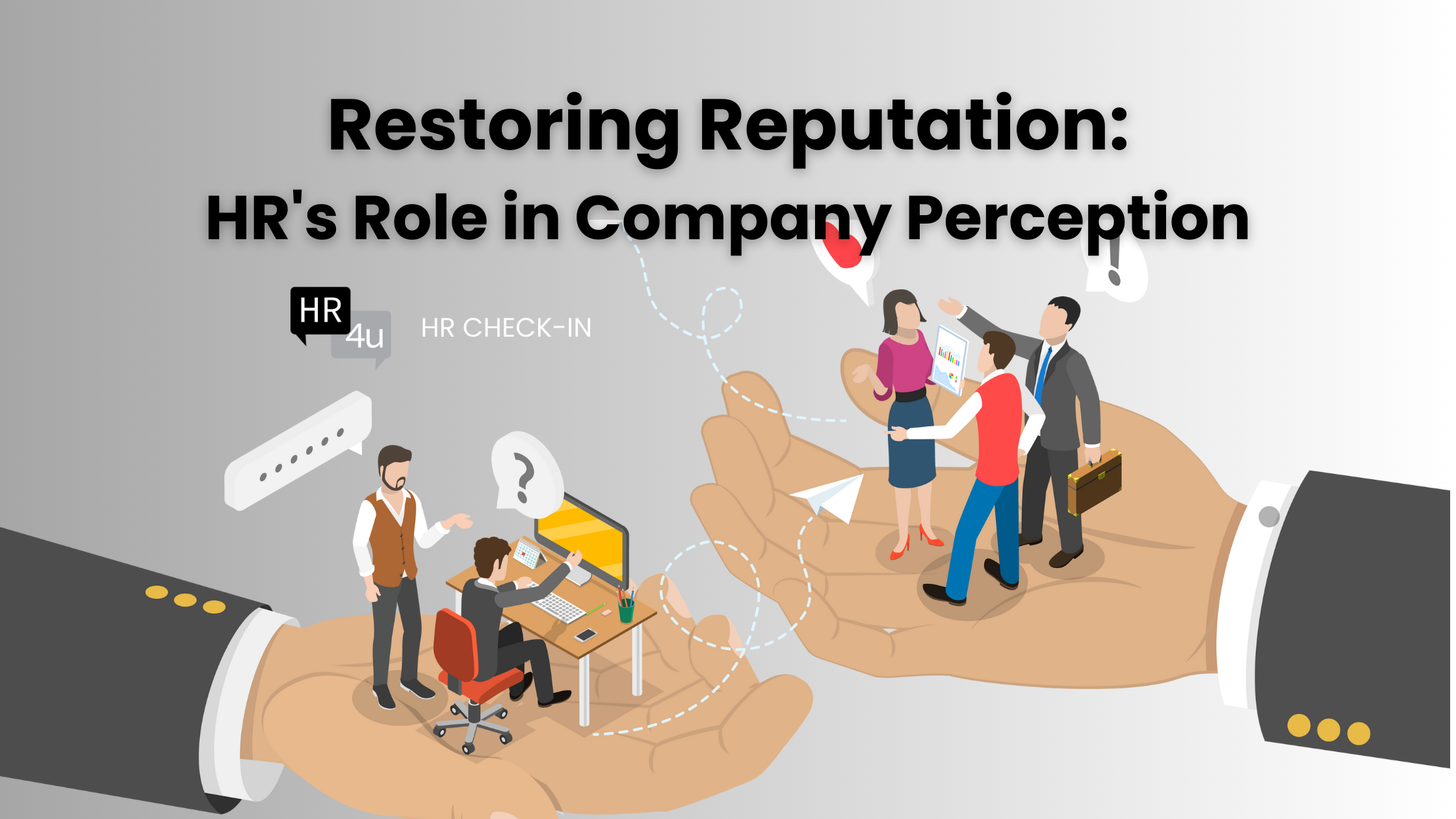HR’s Role in Company Perception
In today’s interconnected world, a company’s reputation is more than just a reflection of its products or services. It encompasses its culture, values, and how it treats its employees. For HR, addressing a negative reputation isn’t just a matter of public relations; it’s about creating meaningful change from within. Here are some strategies HR can employ to improve and restore a company’s image:
1. Foster Transparency and Open Communication
Transparency = trust. HR can facilitate open communication channels where employees feel safe to voice their concerns and provide feedback. Implementing regular town hall meetings, anonymous suggestion boxes, or online forums can encourage dialogue and demonstrate a commitment to transparency.
2. Address Internal Issues Promptly and Fairly
Ignoring internal issues only exacerbates them and damages reputation further. HR should proactively address issues such as harassment, discrimination, or unfair treatment. Implement clear policies and procedures for reporting and investigating complaints, ensuring that all employees are treated fairly and respectfully.
3. Invest in Employee Well-being
A company’s reputation is closely tied to how it treats its employees. HR can champion initiatives that promote employee well-being, such as flexible work arrangements, wellness programs, or mental health support. By prioritising the holistic health of employees, companies can cultivate a positive workplace culture that resonates externally.
4. Embrace Diversity and Inclusion
Diversity and inclusion aren’t just buzzwords—they’re essential components of a reputable company. HR can spearhead efforts to diversify the workforce, implement inclusive hiring practices, and provide diversity training for employees at all levels. Celebrating diversity not only enriches the workplace but also enhances the company’s reputation as an inclusive employer.
5. Uphold Ethical Standards
Integrity is non-negotiable when it comes to reputation management. HR should ensure that all employees are aware of the company’s code of conduct and ethical guidelines. Lead by example and hold individuals accountable for unethical behaviour. By demonstrating a commitment to integrity, companies can rebuild trust and credibility.
6. Engage in Corporate Social Responsibility (CSR)
Companies have a responsibility to give back to the communities they serve. HR can collaborate with other departments to develop and implement CSR initiatives aligned with the company’s values and mission. Whether it’s volunteering, environmental sustainability efforts, or charitable donations, CSR activities demonstrate a commitment to making a positive impact beyond profit margins.
7. Monitor and Respond to Feedback
Reputation management is an ongoing process. HR should actively monitor online reviews, social media mentions, and employee feedback to gauge public perception. Address both positive and negative feedback promptly and transparently. Acknowledge mistakes, take corrective action, and communicate the company’s commitment to improvement.
8. Cultivate Brand Ambassadors
Employees are the most influential brand ambassadors. HR can empower employees to become advocates for the company by fostering a positive work environment and providing opportunities for professional growth and development. Encourage employees to share their experiences on social media and participate in employer branding initiatives.
Rebuilding a company’s reputation requires a concerted effort from HR and all stakeholders. By prioritising transparency, fairness, employee well-being, diversity, ethics, CSR, feedback management, and employee engagement, HR can play a pivotal role in transforming a negative perception into a positive one. Ultimately, a strong reputation not only attracts top talent and loyal customers but also contributes to long-term business success.
